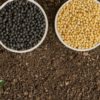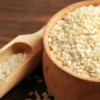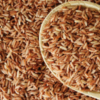We are frequently asked what organic food is and why is it superior to conventional food? The answer is straightforward: “organic” refers to how the food is grown. Organic food means that fewer or no chemicals are used; there are no preservatives, no artificial flavors, or fertilizers. Foods labeled as organic must be devoid of chemicals and additives to be considered organic.
Now, the question is, how does one tell the difference between organic and non-organic food? It is possible to locate this information on the back of the food packaging. Suppose you’re seeking organic raw basmati rice. We recommend you look for a US FDA-approved label on the back. The mark from these organizations serves as a guarantee that the organic items are genuine.
Research and findings
One 2012 study argues that there is limited scientific evidence to support the improved nutritional benefits of organic foods, except for organic foods having a higher phosphorus content. Another study indicated that organic agricultural uses included increased phytochemical (compounds in plants thought to have preventive health benefits) and vitamin C levels. In the same 2012 study, pesticides were 30% lower in organic foods than in non-organic foods. However, both were determined to have a very low chance of exceeding the maximum allowable levels and were completely safe.
In another study, when purchasing organic produce as opposed to non-organic, some
fruits and vegetables are known to have significant concentrations of pesticides and fertilizers, and these are listed below. Every year, the Environmental Working Group publishes a list of 12 foods containing the highest concentrations of pesticides and another of 15 foods with the lowest concentrations of pesticides. If you only want to buy a few things organic, the Environmental Working Group recommends buying a few things from their list. According to the American Heart Association, strawberries, spinach, nectarines, apples, and peaches are the top five “dirty dozen,” or high-level foods for 2017. According to the USDA, avocados, sweet corn, pineapples, cabbage, and onions are the top five “clean fifteen,” or lower-level items to consume this year. This list of organic foods like gluten-free ragi flour may be useful if you wish to pick and choose which foods to purchase organically.

Another advantage of organic farming that attracts consumers is that it has little or no influence on the environment. Organic farming approaches are proven to help sustainability by reducing pollution and conserving natural resources, among other things (wildlife, energy, nutrients). Some people say they prefer the flavor of organic foods like Organic Whole Wheat Flour over non-organic goods, which they attribute to being tastier than others.
Are organic foods expensive?
Organic foods can be more expensive than conventional meals. Although we say “CAN,” we emphasize the word “can” because this is not always the case. The price differential will significantly depend on the store, the food (is it in season? ), other factors, and the company that produces the food.
Here are a few reasons why organic foods may be more expensive than conventional foods:
- To achieve this goal, improve the living conditions of animals.
- To cover the cost of organic certification,
As a result of crop failure (since certain chemicals are not used to prevent loss), demand for workers arises.
Some people believe that organic produce spoils more quickly than non-organic produce when acquired in its fresh state. Because of this, it is important to ensure that you have a plan in place before purchasing fresh, organic vegetables.
Organic food, as previously said, can be more expensive, although this is not always the case. This is the reason why we recommend you buy all your organic foods from ZZorganic.
Is it OK to eat food that doesn’t come from organic products?
One of the most pressing questions in the organic versus non-organic debate is whether or not the pesticides found in non-organic foods, which are 30 percent more common than in organic foods, are safe. Pesticide levels in conventionally cultivated foods (i.e., non-organic foods) are far lower than safe ones. As a result, they are considered safe for consumption.
Another source of concern is the presence of growth hormones and antibiotics in non-organic food sources. The possibility of antibiotic resistance in humans is a source of problems for antibiotics. Hormones and antibiotics have the potential to cause negative health impacts, although further research is needed to confirm this.
Is organic food better than non–organic?
Here are some facts regarding organic versus non-organic food that will assist you in making an informed decision about your diet.
One of the most important reasons organic food is better for you is that it contains no pesticides or additional chemicals. Since the crops are cultivated in a natural environment without chemicals or pesticides, they are purer and healthier.
Organically grown produce is also known to have lower levels of nitrate than non-organically cultivated crops. Several tests have revealed that nitrate levels in organically cultivated food are 30 percent lower than those in non-organic food when compared to non-organic food.
Organic food has been proven to be significantly more healthy than conventional food. According to a few studies, organic produce contains higher levels of vitamin C, certain minerals, and antioxidants, all of which are supposed to protect the body against aging, cardiovascular disease, and cancer, among other things.
It’s well worth every penny:
 Organic food is safer to ingest and more nutritious. Still, it also benefits the environment and society, so choosing organic is the best choice. Avoiding chemicals and pesticides is beneficial for the environment and our farmers’ livelihoods. This is the only one of the numerous ways that we can make a difference in terms of pollution reduction.
Organic food is safer to ingest and more nutritious. Still, it also benefits the environment and society, so choosing organic is the best choice. Avoiding chemicals and pesticides is beneficial for the environment and our farmers’ livelihoods. This is the only one of the numerous ways that we can make a difference in terms of pollution reduction.
The biggest favor you can do for yourself and the environment is to create a shift in your lifestyle. In the words of the common proverb, a minor adjustment “may result in a significant difference.” This is deemed true when it comes to choosing organic foods. So, it is time to choose a healthy lifestyle. Get started today!
Today is a great day to go ZZorganic!






